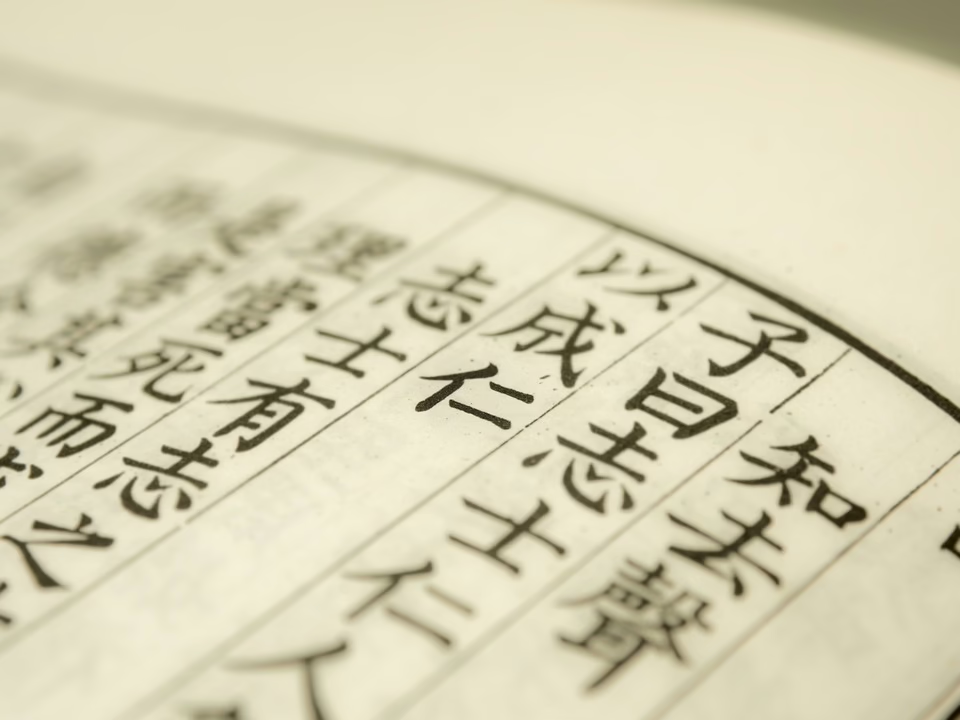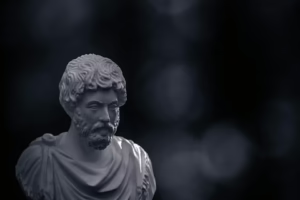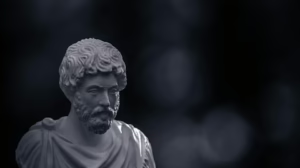The Philosophical Library: 10 Books That Every Intellectual Should Own
In an age characterized by rapid technological advancements and an overwhelming volume of information, the importance of philosophical literature remains undiminished. Philosophy encourages critical thinking, nurtures ethical perspectives, and deepens our understanding of existence. This article sets out to outline ten fundamental philosophical texts that every intellectual should consider owning as part of their library. These works, spanning a multitude of eras and philosophical traditions, offer invaluable insights and provoke thought.
1. “Meditations” by Marcus Aurelius
Overview:
Written in the second century, “Meditations” is a series of personal reflections that define Stoic philosophy. Marcus Aurelius, as a Roman Emperor, provides a pragmatic approach to dealing with life’s challenges and the responsibilities that come with leadership.
Key Themes:
Stoicism teaches the importance of rationality and self-control. Aurelius emphasizes the transience of life and the necessity of accepting one’s fate. His reflections encourage readers to maintain their integrity and virtue, regardless of external circumstances.
Why Own It:
In a world filled with distractions and uncertainties, “Meditations” serves as a timeless guide to personal resilience and moral rectitude.
2. “Critique of Pure Reason” by Immanuel Kant
Overview:
Kant’s groundbreaking work, first published in 1781, investigates the relationship between human experiences and knowledge. Through his exploration of metaphysics, epistemology, and ethics, Kant seeks to understand the limits and scope of human reason.
Key Themes:
Kant introduces the notion of a “transcendental” approach, positing that knowledge comes from the interplay between sensory experience and rational thought. His distinction between the “phenomenal” world (what we can perceive) and the “noumenal” world (things-in-themselves) reshaped modern philosophy.
Why Own It:
Understanding sectors of contemporary thought, “Critique of Pure Reason” offers readers a foundational grasp of modern epistemology and metaphysics.
3. “Being and Time” by Martin Heidegger
Overview:
Heidegger’s 1927 masterwork redefined existential phenomenology. He dives deep into the nature of being, consciousness, and human existence, critiquing the philosophical traditions that preceded him.
Key Themes:
Heidegger uses the term “Dasein” to describe human existence. He explores themes of authenticity, temporality, and the concept of “being-toward-death,” prompting readers to confront the nature of their existence.
Why Own It:
For anyone interested in existential philosophy, understanding Heidegger’s arguments about being and time can radically alter one’s perspective on life and self.
4. “The Republic” by Plato
Overview:
Plato’s “Republic,” written in the 4th century BCE, is perhaps the most influential text in Western philosophy. The dialogue covers justice, the ideal state, and the philosopher-king concept, arguing for an enlightened leadership.
Key Themes:
Plato delineates various forms of government and explores the nature of justice. He posits the tripartite soul and illustrates the allegory of the cave, which explains the nature of knowledge and enlightenment.
Why Own It:
As a foundational text of Western political philosophy, “The Republic” remains essential for understanding concepts of justice, governance, and morality.
5. “Beyond Good and Evil” by Friedrich Nietzsche
Overview:
Nietzsche’s 1886 work is a critique of traditional moral philosophy. He challenges readers to rethink moral constructs and encourages a re-evaluation of values in the context of modernity.
Key Themes:
Nietzsche introduces the concept of master-slave morality, questioning accepted ethical norms. He argues that morality should be viewed from the perspective of individual power, creativity, and life affirmation.
Why Own It:
“Beyond Good and Evil” is a bold invitation to question societal norms and develop a personal moral compass, essential for anyone seeking a deeper understanding of existential philosophy.
6. “The Phenomenology of Spirit” by G.W.F. Hegel
Overview:
Hegel’s 1807 work traces the development of consciousness from sense perception to absolute knowledge. His dialectical method—thesis, antithesis, synthesis—structures much of modern philosophical thought.
Key Themes:
Hegel examines the evolution of self-consciousness and spiritual development. The text also tackles the complexities of freedom, culture, and history, ultimately proposing that reality is shaped through spiritual progress.
Why Own It:
An essential text for those studying idealism and the evolution of thought, Hegel’s work encourages an exploration of the interconnectedness of history and philosophy.
7. “The Second Sex” by Simone de Beauvoir
Overview:
Published in 1949, this foundational text in feminist philosophy examines the construction of womanhood and the systematic oppression women face. Beauvoir’s analysis is both literary and existential.
Key Themes:
Beauvoir contends that “one is not born, but rather becomes, a woman,” emphasizing the role of socialization in gender identity. She deconstructs the myths surrounding femininity, advocating for women’s liberation and autonomy.
Why Own It:
As a cornerstone of feminist theory, “The Second Sex” remains essential for understanding gender dynamics and the quest for equality in contemporary society.
8. “A Theory of Justice” by John Rawls
Overview:
In 1971, Rawls presented a new vision of justice based on fairness in social cooperation. His concepts of the original position and the veil of ignorance have become foundational in political philosophy.
Key Themes:
Rawls argues for principles of justice that ensure equality and fairness. He critiques utilitarianism and introduces a framework where social and economic inequalities are permissibly arranged only if they benefit the least advantaged members of society.
Why Own It:
For anyone interested in ethics and political philosophy, Rawls’ pragmatic exploration of justice remains profoundly relevant in discussions about social policy and moral responsibility.
9. “The Tao Te Ching” by Laozi
Overview:
This ancient Chinese text, attributed to the philosopher Laozi, outlines the principles of Daoism. Its poetic verses encapsulate wisdom on harmony, balance, and the natural order.
Key Themes:
The Tao Te Ching advocates for simplicity, humility, and compassion. It emphasizes the importance of aligning one’s actions with the Tao—the underlying principle of the universe.
Why Own It:
For those seeking a contrasting perspective on Western philosophical norms, the Tao Te Ching provides an invaluable insight into Eastern thought and a meditative approach to life.
10. “The Structure of Scientific Revolutions” by Thomas S. Kuhn
Overview:
Kuhn’s 1962 work revolutionized the philosophy of science by introducing the concept of paradigm shifts. He challenges the notion of linear scientific progress, presenting science as a series of revolutionary changes in understanding.
Key Themes:
Kuhn posits that scientific fields undergo revolutions when the prevailing paradigm can no longer address anomalies. This leads to a shift in collective scientific understanding and practices.
Why Own It:
For intellectuals interested in the philosophy of science, Kuhn’s insights remain pivotal in understanding how scientific knowledge evolves and is validated.
Conclusion
The ten texts outlined here contribute to a richer understanding of varied philosophical traditions and the human condition. Reading these works not only enhances intellectual growth but also fosters a lifelong curiosity and engagement with the world. Building a philosophical library with these essential texts equips individuals to engage in meaningful discussions, challenge their assumptions, and embrace the complexities of thought.
References
- Aurelius, Marcus. Meditations. Translated by Gregory Hays. Modern Library, 2002.
- Kant, Immanuel. Critique of Pure Reason. Translated by Paul Guyer and Allen W. Wood. Cambridge University Press, 1998.
- Heidegger, Martin. Being and Time. Translated by John Macquarrie and Edward Robinson. Harper & Row, 1962.
- Plato. The Republic. Translated by Benjamin Jowett. Dover Publications, 2000.
- Nietzsche, Friedrich. Beyond Good and Evil. Translated by Judith Norman. Cambridge University Press, 2002.
- Hegel, G.W.F. The Phenomenology of Spirit. Translated by A.V. Miller. Oxford University Press, 1977.
- Beauvoir, Simone de. The Second Sex. Translated by Constance Borde and Sheila Malovany-Chevallier. Vintage, 2011.
- Rawls, John. A Theory of Justice. Harvard University Press, 1971.
- Laozi. Tao Te Ching. Translated by Stephen Mitchell. Random House, 1988.
- Kuhn, Thomas S. The Structure of Scientific Revolutions. University of Chicago Press, 1962.
This list represents a diverse palette of philosophical thought. Each text not only holds its unique significance but weaves a broader narrative on humanity and its quest for understanding.


























Add Comment